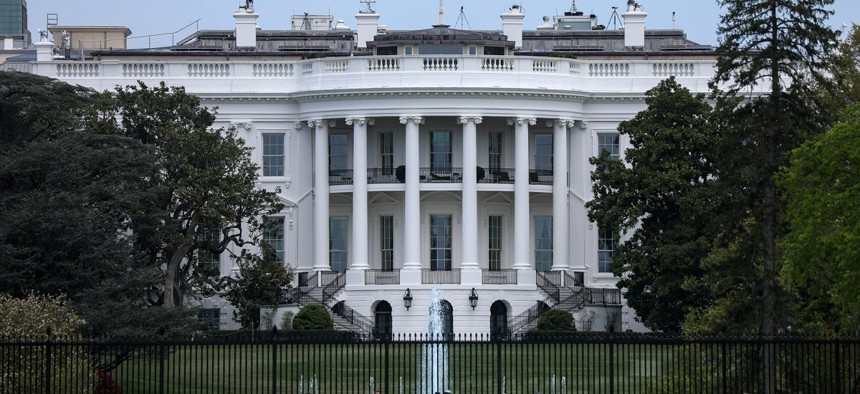White House Developing National Strategy to Increase Data Collection as Privacy Tech Improves

Yasin Ozturk/Anadolu Agency via Getty Images
A pending national strategy on data collection and analytics will focus on regulation and policy changes, according to a forthcoming request for public comments.
The U.S. government wants to collect, analyze and share more of Americans’ data, especially as new technologies and procedures offer the potential to do so without compromising citizens’ privacy, and is developing a national strategy to align policies and regulations with that goal.
The Biden administration is developing a national strategy on “privacy-preserving data sharing and analytics,” according to a request for information on advancing privacy-enhancing technologies set to publish Thursday in the Federal Register.
The pending strategy comes as governments and private sector companies continue to collect more data through users’ connected devices—computers, smartphones, televisions, vehicles and more—with few regulations on how that data is harvested, stored and shared (or sold).
“The national strategy will put forth a vision for responsibly harnessing privacy-preserving data sharing and analytics to benefit individuals and society,” officials with the Office of Science and Technology Policy wrote in the information request. “It will also propose actions from research investments to training and education initiatives, to the development of standards, policy and regulations needed to achieve that vision.”
The notice cites several critical sectors in which improved data sharing could speed important innovations, including “health care, climate change, financial crime, human trafficking and pandemic response.”
While comprehensive, diverse datasets can help researchers in all of these fields, that need must be balanced with protecting the privacy of individuals from whom that data was sourced. Clinicians developing new treatment methods are offered as a prime example, as “some medical researchers may experience challenges when trying to gain access to medical records because those records reveal health information that may identify the individual patients, implicating the privacy and safety of those patients as well as medical privacy law.”
These issues can become compounded in the public sector, as the federal government attempts to walk a line between using data to improve government efficiency and delivery of benefits—per the Federal Data Strategy—and respecting the privacy of its citizens.
The notice offers some examples of technologies that enable data sharing while anonymizing the sources of that data: secure multiparty computation, homomorphic encryption, zero-knowledge proofs, federated learning, secure enclaves, differential privacy and synthetic data generation tools.
But those technologies and others have not matured to the point of being useful, the notice states.
As those technologies improve, the administration wants to be prepared to take advantage by modifying existing regulations around data sharing and analysis, and the pending national strategy would inform such moves, the notice states.
“The purpose of this request for information is to better understand how to accelerate the responsible development and adoption of [privacy-enhancing technologies] in a manner that maximizes the benefit to individuals and society, including increasing equity for underserved or marginalized groups and promoting trust in data processing and information technologies,” the notice states. “We are especially interested in comments on federal laws, regulations, authorities, research priorities and other mechanisms across the federal government that could be used, modified or introduced to accelerate the development and adoption of PETs.”
The request for information includes 10 “specific” areas of interest:
- Specific research opportunities to advance PETs.
- Specific technical aspects or limitations of PETs.
- Specific sectors, applications or types of analysis that would particularly benefit from the adoption of PETs.
- Specific regulations or authorities that could be used, modified or introduced to advance PETs.
- Specific laws that could be used, modified or introduced to advance PETs.
- Specific mechanisms, not covered above, that could be used, modified or introduced to advance PETs.
- Risks related to PETs adoption.
- Existing best practices that are helpful for PETs adoption.
- Existing barriers, not covered above, to PETs adoption.
- Other information that is relevant to the adoption of PETs.
The information is being gathered by OSTP’s Subcommittee on Networking and Information Technology Research and Development, or NITRD, through its Fast Track Action Committee on Advancing Privacy-Preserving Data Sharing and Analytics.
NEXT STORY: Momentum and money



